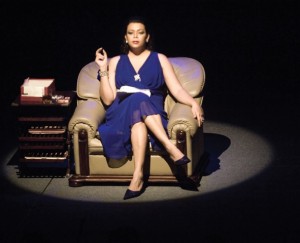-
Theatre and arts – a way of life
January 2010
By Manisha Wijegoonawardena
She’s a ‘Jill of many trades’ in her selected sphere being a theatre director, actor, writer, teacher, Arts administrator and once a radio personality – all revolving around the arts.
We met Tracy Holsinger at her production set of the Traveling Circus at Nuga Sevana, an amphitheatre on Bauddhaloka Mawatha; exceptional and unique, as she herself.
“I don’t think I had much of a choice, I was born into it,” she says of how she got involved in theatre.
Hailing from a family of artists, musicians, dramatists including one of the most prominent names in arts and English literature in Sri Lanka, Wendy Whatmore, her grandmother, she was indeed born into it.
“I grew up involved in every aspect of theatre, I lived with my grandmother and her sisters for a long period in my youth. One of her sister’s was a cellist and the other an artist so my entire childhood was saturated with art, music and drama,” she reflects.
Her first ever theatre performance was in the Wizard of OZ at the age of four, where she played a Poppy flower. Interestingly it was directed by Shyam Selvadurai who was 14 years old at the time. She acted in many school productions at Ladies College thereafter. However she discovered her true passion for theatre when she was 16. The play was by Rupert Brooke called “Lithuania”. Tracy’s role was that of a psychotic woman who conspires with her parents to murder a stranger and take his money – only to discover that the stranger was in fact the long lost brother and son. “It was a really depressing play,” she comments laughingly, though it was a turning point where Tracy realised that ‘this was it’. A year later, she directed her first play titled “The Album”, a collage of poetry in performance which depicted the various stages in a woman’s life.
After completing a joint honours degree in Drama and Theatre Arts at Goldsmiths College in the UK, Tracy returned to Sri Lanka in pursuit of contributing to the local theatre industry. “The experience I gained was invaluable for me, I don’t think you can be a good director or actor unless you have really experienced theatre from every single angle,” she says of her experience in the UK. A significant aspect about her theatricals is that no two plays are ever the same.
”I don’t think you can be a good director or actor unless you have really experienced theatre from every single angle,”
 Her focus is on ‘Experimental Theatre’, “I experiment with lots of different forms where I take a play and change it, either by setting it in an unconventional location or creating an alternative acting style for it,”. Accordingly her plays focus on altering traditional conventions of space, movement, mood, tension, language, symbolism and other elements.
Her focus is on ‘Experimental Theatre’, “I experiment with lots of different forms where I take a play and change it, either by setting it in an unconventional location or creating an alternative acting style for it,”. Accordingly her plays focus on altering traditional conventions of space, movement, mood, tension, language, symbolism and other elements.
Her play Ubu Rex was a parody of Macbeth mixed with traditional Japanese theatre and puppetry. “It’s all about experimenting with genres and other elements of theatre,” she adds.
Talking further about her productions Tracy says, “We did a production called ‘Fefu and Her Friends’, which was Promenade Theatre. It included four different stages and the audience was divided into four groups and they had to walk to each stage. The actors on all the sets performed the scene four times simultaneously until all segments of the audience had seen each scene.”
“Theatre is not just a comedy at the Wendt; it’s much more than that.” she adds.
Her plays are inspired by the works of Augusto Boal, Bertolt Brecht, Peter Brook, Mike Lee to name a few. “It can even be an object like a painting,” says Tracy.
Her views on acting, actors and rehearsals are succinct and refreshing and identifies the ideal actor as “one who can just shift from one thing to another, instead of just freezing up”. Although her schedules include an intense six week rehearsal period the experimental factor stops about two weeks before the show. “You need to be absolutely alive and on the edge. Nothing kills a good play faster than over rehearsal.” Her company focus is not on expensive theatre productions but instead on genuinely excellent acting to hold the attention of the audience.
Talking about how her family influenced her work she says, “my family has been my strongest support and also my sternest critics. I don’t think I would have been able to achieve half of what I have if it wasn’t for them.”
When asked what life would be without theatre, ‘Boring’ she says without hesitation.











